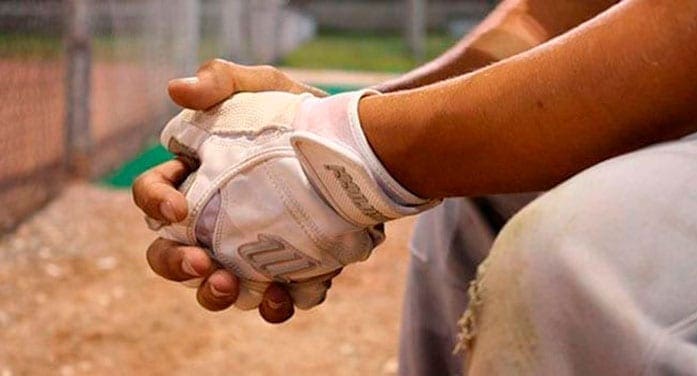 Major League Baseball’s decision to move the all-star game out of Georgia and to Colorado will guarantee that state voting laws will be a big story in the days surrounding the game.
Major League Baseball’s decision to move the all-star game out of Georgia and to Colorado will guarantee that state voting laws will be a big story in the days surrounding the game.
Colorado’s voting system will undoubtedly get a lot of attention, especially as the July 13 game gets closer. That’s good news, whatever your political stripe, and whether or not you agree with MLB’s decision to move the game.
Colorado’s voting system is America’s gold standard. If having the all-star game in Colorado leads to more states adopting Colorado’s voting laws and processes, it will be a win for the United States and its democracy.
Colorado has the most efficient, safe and secure voting system in the United States. In Colorado, numerous checks and balances are built into the process. Bipartisan teams transport, verify, open, sort, count and store Colorado’s ballots. Computers and Republican and Democrat election judges check each vote and signature against state registries before they’re tabulated. If the computers and judges (who are trained for the task) agree there isn’t a signature match, the votes are kicked out.
Moreover, the state does routine risk-limiting audits during an election, making sure paper ballots match the electronic record 100 per cent.
The conservative-leaning Heritage Foundation has recorded only 14 cases of election-related offences in Colorado since 2005. In 2018, 0.00027 per cent of 2,566,784 ballots cast in Colorado were referred by bipartisan teams to district attorneys for further investigation, according to Colorado Secretary of State Jena Griswold.
Wayne Williams, a Republican and former secretary of state in Colorado who led the start of mail-in voting in the state in 2013, says one of the most important security features of Colorado’s election system is the voter registry and its diligent upkeep.
“We have many, many, many different signatures from you as a voter to compare your signature against,” said Jocelyn Bucaro, Denver’s director of elections from August 2019 to January 2021. Signatures of voters are collected in a variety of ways, including drivers licences, as people register to vote, as people vote in previous elections, etc.
The secretary of state’s office checks with the post office, Colorado Department of Health and Environment, and Department of Corrections monthly (more often as elections near) to make sure people haven’t died, moved out of the state or been imprisoned. If any of those things occur, the person is removed from the registry and won’t receive a ballot.
Coloradans can mail in their ballots or drop them in one of the hundreds of ballot boxes across the state. Voters can then go online and track where their ballot is throughout the counting process. Bipartisan teams collect votes from the heavy, metallic, bolted-down drop boxes daily. The ballot boxes are required to have 24-hour video surveillance with adequate lighting. Once ballots are removed from the ballot boxes, the containers that hold the ballots are locked and labelled by location.
Colorado’s vote tabulation system is also very safe. It’s nearly impossible for anyone outside the process to tamper with a single ballot. The state’s voting system computers aren’t connected to the Internet. Ballot rooms have video surveillance and key card access. As a final precaution, ballots and envelopes are stored and secured for 25 months following an election.
“You would be blown away at the security requirements,” says Kim Bonner, clerk and recorder in Routt County.
Coloradans still have the option of voting in person, if they prefer. And one to four per cent of voters still do.
“It’s safe, it’s secure, it’s transparent, it has been tested, it’s tried, it’s true and it’s pandemic proof,” says Denver County clerk and recorder Paul Lopez.
Besides being safe and secure, Colorado’s voting system is also very convenient. Long, time-consuming lines to vote don’t exist in the state. Ballots are sent to voters 25 days before election day, which gives voters plenty of time to study candidates and research ballot measures.
“It’s so much more convenient,” said Bill Skinner of Denver. “Sitting down. Doing it at home where you don’t have to worry about distractions.”
Jill Thompson, a working mother in Denver, also prefers the ease of voting in Colorado. She lamented the hours she wasted in line to vote at a polling centre when she lived in Houston, Texas.
Elections are the foundation of democracy. A person’s vote is his/her voice. As such, the goal should be to do all we can to make voting as safe, secure and convenient as possible. Colorado’s voting system does that better than any other state’s.
So, along with the moon-shot-home runs that will occur during this year’s home run derby at Denver’s mile-high altitude, the state’s model should be highlighted during all-star game week in Colorado.
Here’s hoping that after Americans across the country get a closer look at how Coloradans vote and process their elections, every other state in the United States will implement a similar system.
Ken Reed is sports policy director for League of Fans (leagueoffans.org), a sports reform project. He is the author of The Sports Reformers, Ego vs. Soul in Sports, and How We Can Save Sports. For interview requests, click here.
The views, opinions and positions expressed by columnists and contributors are the authors’ alone. They do not inherently or expressly reflect the views, opinions and/or positions of our publication.

